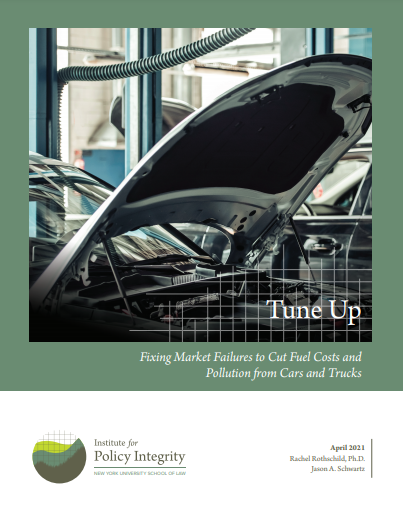This report analyzes a key issue in U.S. transportation policy: the energy efficiency gap. Economists have long observed that while more fuel-efficient cars and trucks save consumers the most money over time, they instead purchase slightly cheaper vehicles that cost more in the long run through greater fuel usage.
Opponents of strong federal car and truck standards, like certain industry groups and auto manufacturers, often argue that the energy efficiency gap reflects actual consumer preferences for less efficient vehicles. Under their theories, stronger standards could not produce real, net cost savings for individual Americans. But there is considerable economic research demonstrating that multiple market failures—including loss aversion, information costs and asymmetries, and manufacturer market power—contribute significantly to the energy efficiency gap. We discuss these market failures and recommend that the Biden administration continue the longstanding practice of incorporating private fuel savings in any evaluation of the costs and benefits of stronger standards for cars and trucks. In doing so, the federal government will not only be improving the health of Americans but keeping money in their pockets.
In June 2021, we submitted comments encouraging the Department of Transportation to advance the objectives of Executive Order 13,990 by strengthening corporate average fuel economy standards. Our comments highlight the consumer savings that would results from stronger, smarter fuel economy standards.

